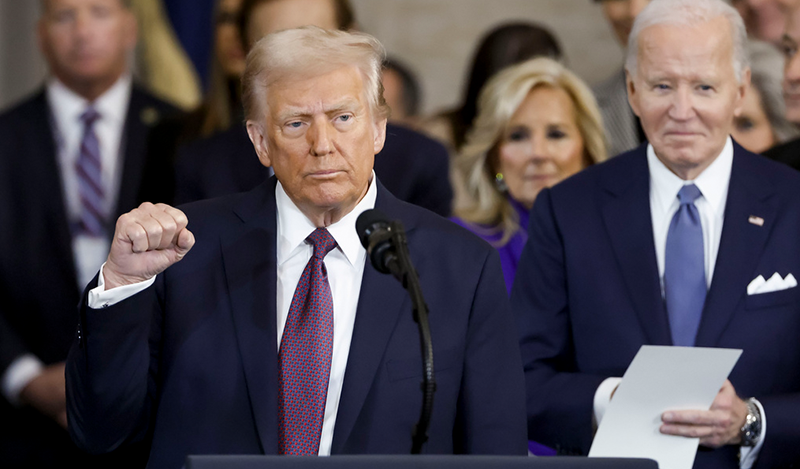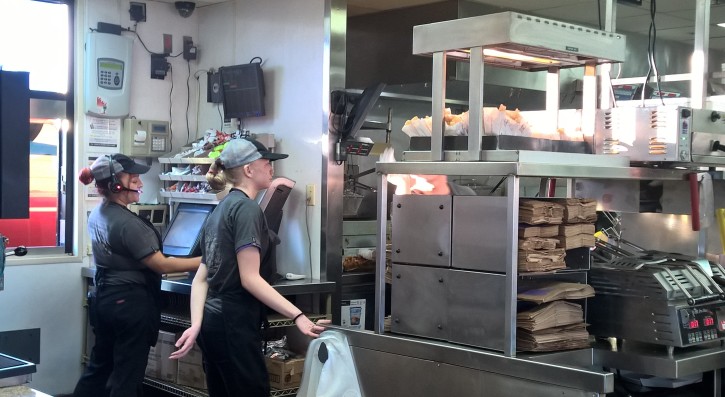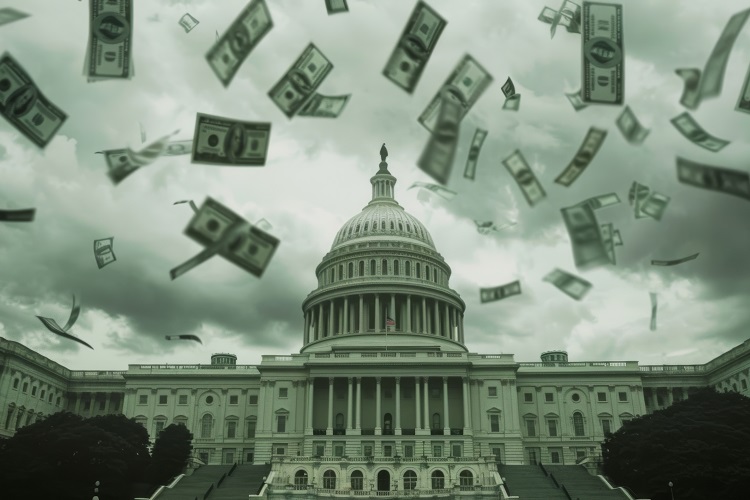
January 24, 2025
Testing Theories of Why: Four Keys to Interpreting US Student Achievement Trends
Key Points Read the PDF. Executive Summary Although national test scores provide clear evidence on student achievement across time, they do not illuminate what is driving gains or losses. Nonetheless, careful examination of test scores can corroborate some explanations for changes in student achievement and discount others. This report examines recent trends in US student…

January 23, 2025
Four College Enrollment Trends to Watch
The National Student Clearinghouse (NSC) published its biannual report on college enrollment trends this morning, providing a comprehensive look at how student numbers totaled up in fall 2024. NSC’s preliminary figures, released in October, initially reported a significant drop in college freshman enrollment. That finding, however, was the result of a data error; this morning’s release of the…

January 22, 2025
How the Trump Administration Can Hit Its Growth Target
By setting an ambitious 3% growth target, US Treasury Secretary nominee Scott Bessent has provided the Trump administration a North Star to follow in devising its economic policies. The task now is to focus on productivity growth and avoiding any unforced errors that would threaten output. US Treasury Secretary nominee Scott Bessent is right to…

January 21, 2025
How Trump Can Permanently Fix the Student Loan Program
Even before he took office, President Donald Trump was already securing major policy wins. Trump’s election induced the Biden administration to withdraw two pending regulations that would have canceled over $250 billion in federal student loans, without congressional approval. Biden officials judged that they did not have enough time to finalize the loan cancellation plans before the new administration takes over….

January 21, 2025
Calling DOGE: HUD’s Costly Hunt for Answers the Market Already Has
The Department of Housing and Urban Development’s (HUD) new grant opportunity of $250,000–$500,000 for research on “Increasing Missing Middle Housing Supply” highlights yet another instance of government inefficiency and waste. While the country clearly needs more middle or light-touch density (LTD) housing, such as accessory dwelling units (ADUs), duplexes, and townhomes, the answers HUD seeks with the…

January 16, 2025
Should We Believe the Economic Data or Americans’ “Lyin’” Eyes? The Answer Is Yes.
Many Americans are convinced the economy is ailing and that life is financially tougher today than a decade—or a generation—ago. Social media posts wax nostalgic for a long-lost era when all single breadwinners allegedly could afford a home and two cars for a family of four. Everyone seemingly knows someone who did everything they were…

January 8, 2025
Menu Adjustment in Response to the Minimum Wage: A Return to the New Jersey-Pennsylvania Border
Abstract This paper studies how output prices are affected by increases in the minimum wage. To the best of our knowledge, we provide the first examination of how the prices of an entire menu of items at a single business adjust in response to a minimum wage increase. Using data we gather from a fast-food…

January 7, 2025
Tax Policy Should Prioritize Shoring Up the Family
During the Biden years, tax policy related to the family revolved around the child tax credit (CTC). Attempts to expand the credit to make it easier for two-parent families to have kids and rely on a sole breadwinner were thwarted by objections that a child allowance would also promote single-parent families in which no one…

January 7, 2025
More Skilled Immigrants for More Economic Growth
The recent appointment of venture capitalist Sriram Krishnan, an Elon Musk ally, to the incoming Trump administration sparked controversy on X (formerly Twitter) among MAGA supporters. The conflict arose from Krishnan’s past support for removing green card country caps for skilled immigrants, a position aligned with Silicon Valley but controversial among some Trump supporters. Amid this debate,…

January 6, 2025
Congress Can Block Student Loan Cancellation—Forever
Over the holiday season, the Biden administration withdrew two pending regulations to unilaterally cancel hundreds of billions of dollars’ worth of student loans. Officials evidently judged that the administration would not have time to finalize and implement the new regulations before the Trump administration takes over. For the time being, loan cancellation by executive action is dead. But a…